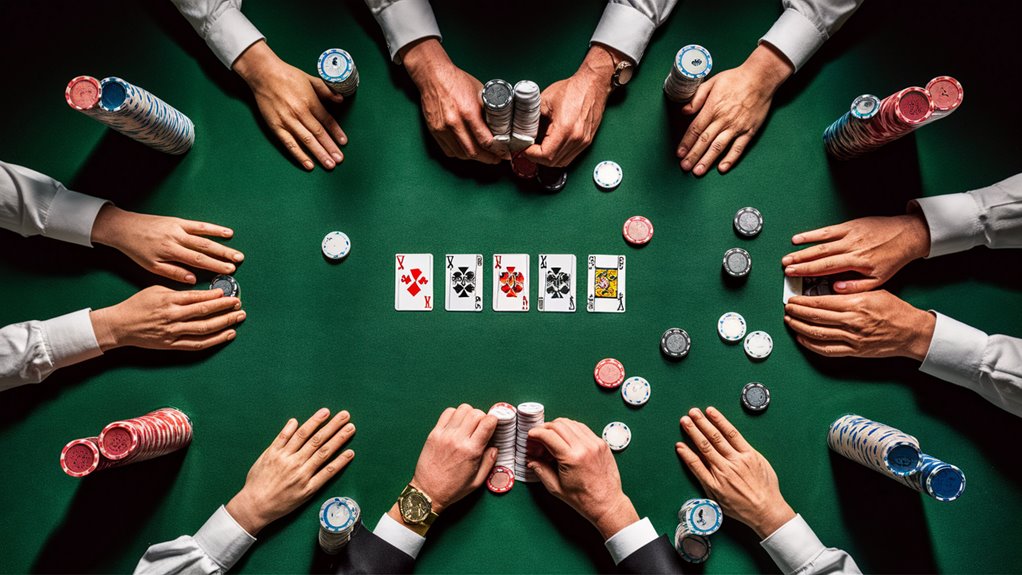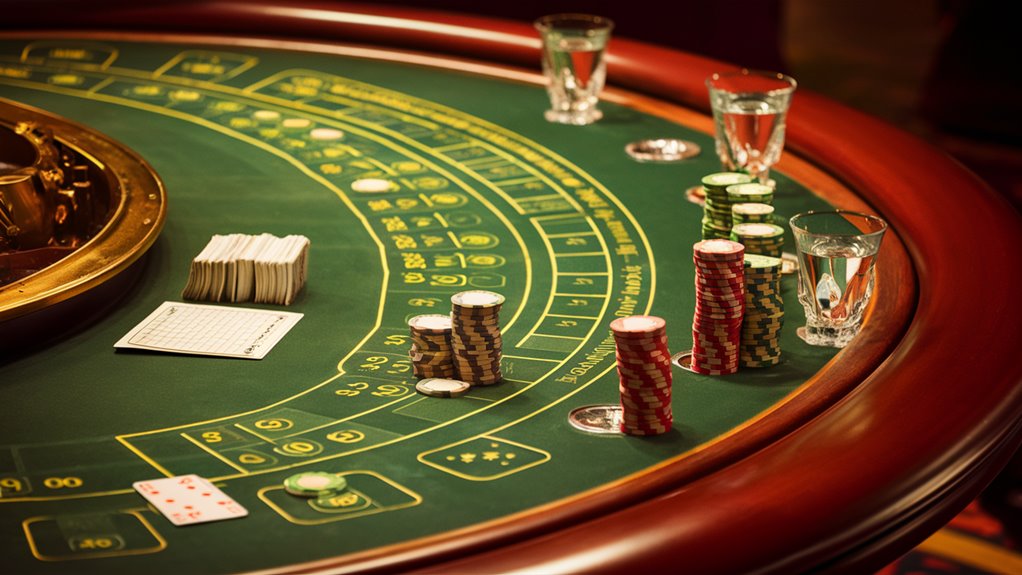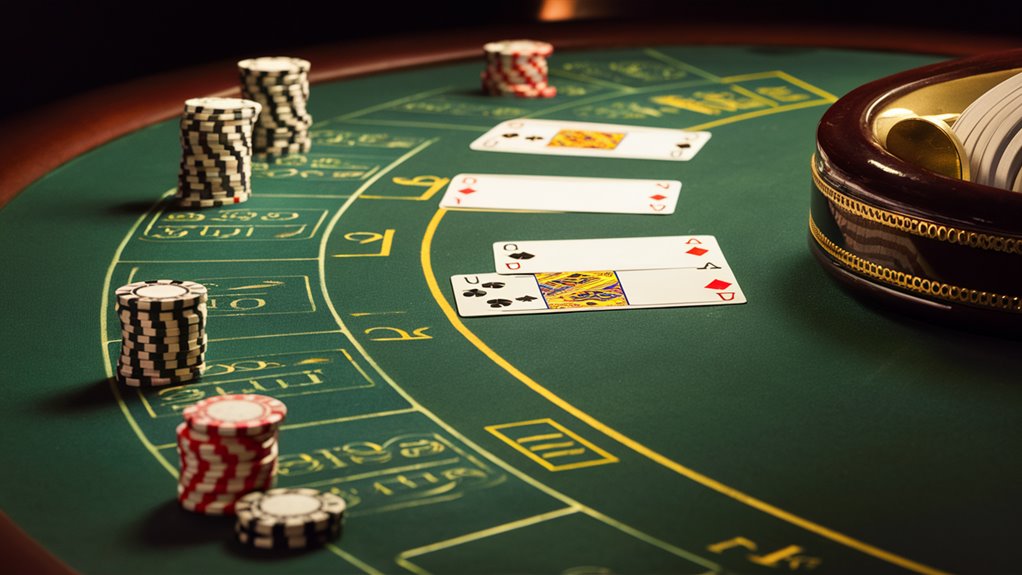This Is Why Some Players Win More Than Others
Through an unusual blend of mental preparation and strategic execution, winners continuously set themselves apart from the field. In the face of pressure, they demonstrate a mastery of emotional response. Their concentration never wavers, and setbacks are regarded as learning opportunities, not failures.
Strategic advantages of players who win
Elite competitors distance themselves from the pack partly through systematic acquisition of skills, balanced with thorough analyses after performances and swift implementation of lessons learned from these experiences. Their winning mindset unites self-belief nobody can shake from them with the humility needed for continual adaptation based on solid data gathered by Martial-Art YesCyber.
The Science of Winning
Winners excel not so much through inherited ability and environment, but staying power in a controlled practice and judgment. As we can see below, winners excel through:
- Mental resilience in competitive pressure
- Strategic flexibility in challenging circumstances
- Performance maximization from data-driven analysis
- Thorough skill development based on planned practice
- Superior tactics at decisive moments
All these components combine to create a good framework Oleander Echo Poker for winning across various competitive environments.
The Psychology of Winning
The psychology of winning features sections on characteristics all champions share.
The Winner’s Mindset
Within the psychology of winners lie peculiar traits that separate past performers from average competitors. Winners show remarkable emotional intelligence under enormous pressure, never allowing their focus to waver into distraction or doubt because of temporary setbacks.
On top of this, they have a foundation of unswerving self-belief tied with the humility to find lessons after defeats.
The Growth Mindset Matrix
Successful performers operate in a state of growth mindset matrix, marked by:
- Objective performance analysis
- Continual strategy adaptation
- Conversion from challenges into opportunities
This is the way these people think about risk-taking and decision-making. To quote: “You can tell that in Europe, people like compared with Asia have more statistical thinking when making decisions.”
Mastering Failure Response
Elite performers adopt this way of analyzing strategic loss. Their approach includes:
- Systematic study of defeat
- Immediate tactical modifications
- Performance enhancement procedures
Champions maintain strict standards of preparation and conduct high-level training, regardless of the pressures from competition.
Mental Conditioning and Self-Talk
Winning psychology means you have to govern your internal dialogue properly. Champions thus always:
- Move negative thinking into strategies which are focused on solutions
- Maintain clear performance imagery
- Plan thinking patterns oriented to goals
This kind of mental conditioning is sustained in a situation and contributes to sustainable competitive advantage.
Deliberate Practice Makes Perfect
The Science of Elite Performance
The difference between elite performers and others lies in how they practice. They practice deliberately. Even casually trained champions, on the other hand, take things systematically and focus intensively on developing their skills. Rather than simply putting in the hours of practice required to improve, they dissect difficult spots in their craft skillfully and work at each little sub-goal one by one.
By this form of focused performance enhancement, it is indeed possible to specifically identify and remedy weaknesses, so that many skills can be mastered sooner.
Strategic Practice Methodology
Outstanding performers participate in very focused, purpose-oriented sets of exercises, which go well beyond the simple repetition of skills. Instead, they Cloudbloom Slots narrow their concentration down onto only certain performance elements and try to assemble improvisational feedback immediately followed by real-time adjustments.
This sort of structured practice demands very high levels of mental involvement and often pushes practitioners beyond their comfort zone – a crucial factor in getting real breakthrough results.
Optimizing Practice Quality
Deliberate practice success hangs on quality rather than quantity. Clear targets for one’s performance, a precise way to measure it, and never-wavering attention throughout an entire session together make up the essence of this fine art.
Training at the edge of one’s current capabilities – a challenge zone which an individual could not maintain for long but is perfect for rapid skill improvement and extremely needy (receptive to learning) – brings about uniformly high results across all areas of human performance.
The Power of Advanced Pattern Recognition
Pattern recognition is one of the basic differences between people on top and the rest. In the chess world, grandmasters have developed an extraordinary ability to spot complex patterns and understand where the situation will go before it transpires.
Such an advanced recognition system facilitates fast decision-making and hence high-pressure match-winning edges.

Strategic Pattern Analysis and Mental Modeling
Successful players win through solid mental modeling methods. They break down complex scenes into recognizable components by constantly thinking of new and different calculations.
Through systematically analyzing repeated patterns, they have created a fine net for treading opponents, predicting their actions and formulating responses that work.
Thus, this method of approach to evaluating typical game situations becomes practical intelligence.
Integrating Strategy with Pattern Recognition
When pattern recognition is combined with the power of strategic thinking, you gain a force for truly exceptional success. Such a combination is exploited by top-level players to:
- Evaluate possible outcomes
- Make probability-based decisions
- Be objective about risk-reward trade-offs
- Systematically work through difficult problems
This integrated approach makes it possible to go beyond the high-level performance that would result from technical skills alone, laying a foundation for consistent long-range competitive success through strategic mastery of patterns.
Mental Toughness Under Pressure
Understanding Mental Toughness in Competition
Mental toughness is really what separates those at the top from others. It goes without saying that natural talent does play some role, but athletes who regularly sustain top performance demonstrate to a man that they possess superior psychological ability in times of crisis.
Research suggests that the mind accounts for perhaps as much as 90% of success at the top competitive levels.
Core Components of Mental Toughness
- Emotional Regulation
Stress control and emotional management are 온카스터디 the basis of competitive excellence. Harried performers maintain unwavering concentration with highly advanced anxiety management techniques.
They develop systematic approaches to handling pressure.
For athletes to become stronger, mental resilience helps to turn setbacks into growing opportunities. By way of structured mental preparation, athletes fine-tune themselves to ride out any challenges. The mental picture of success helps keep your thoughts positive.
Athlete’s Guide to Developing Mental Toughness: Practical Techniques
One of the cornerstones in establishing mental strength is performance visualization. Athletes need to have consistent pre-competition routines that include:
- Environmentally controlled techniques for controlling the autonomic nervous system through breathing patterns
- Precisely programmed exercises in visualization dealing with the outcomes of successful performances at all levels, major or minor
- Symmetrical increase of pressure by various means
- Serious mental preparation programs
These methods achieve lasting improvements on the part of athletes’ competitive mental toughness, resulting in excellent performance improvement in all pressure situations.
Learning after Each Match
Maximizing Match Experience to Achieve Progressive Development
Top-ranked athletes realize that each game is both an invaluable experimental field and an important development study. They systematically decompose their wins and losses, delineating publications worthy of observation, i.e., what relevance carries them forward to future victories.
Formal Analysis After a Match
Post-match analysis routines center around tracking various patterns of vital importance. Key moments, strategic turning points, and tactical realignments all come under close scrutiny at the hands of the athlete throughout match day.
Maintaining a detailed match-day performance record is invaluable for identifying work patterns and ensuring systematic development.
Case Study on Three Basic Points
- Evaluation of Technical Execution
- Tactical Decision Analysis
- Effective Emotional Management
Even after the game is over, every competition has priceless feedback which is important for gaining an edge on future rivals.
Continuous competitive excellence formation is based mostly on analysis of these factors.


